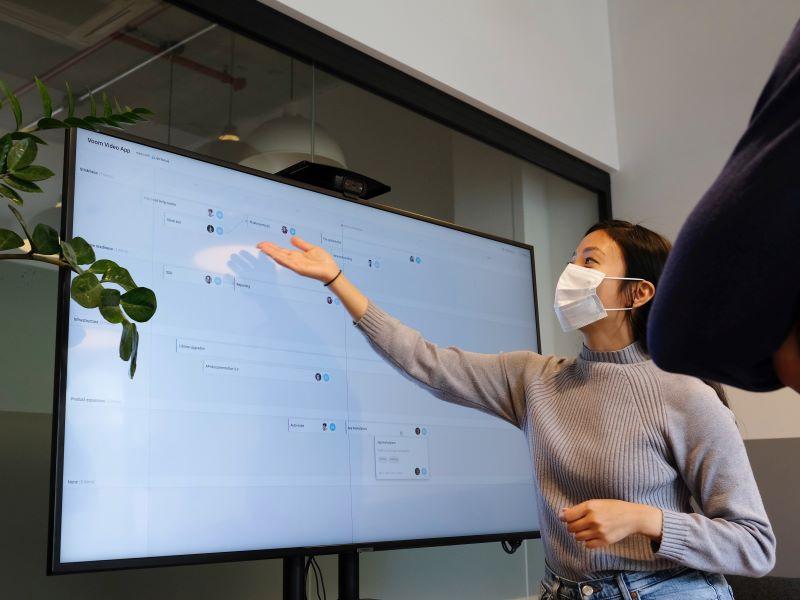
Using literature reviews to strengthen research: tips for PhDs and supervisors

What is a literature review?
A literature review is a slippery idea; what we mean by it varies across disciplines and between scholars. There is no shortage of resources defining it and telling you how to do it, yet early career researchers are often baffled when they try to create their own. Part of the problem is the term itself, which contains tacit assumptions that are not always shared. For example, one supervisor might think it serves merely to situate the research in existing discourses, whereas another expects to see a linear narrative leading to the research question. A third might expect both.
- Get your research out there: 7 strategies for high-impact science communication
- Transitioning to a PhD: common struggles and how to overcome them
- All together now: how to write an interdisciplinary research proposal
To complicate matters further, supervisors often ask for the literature review early in a PhD, which can result in a dull list of other scholars’ work, seemingly unrelated, with no coherent argument. As a professional writer outside the academy, my focus is on narrative – establishing that elusive golden thread through the thesis – so I get researchers to ditch the term literature review and turn their attention to the dynamic relationship between their own ideas and existing work. This helps to strengthen their critical writing from the start and develop their distinctive voice.
Here are my suggestions to support researchers in creating an effective narrative through their literature review.
Tips for early career researchers
1. Don’t be afraid to challenge your supervisor to define what a good literature review looks like in your discipline. Ask them what its purpose should be for your project. Checking now what they expect from your literature review can avoid problems later.
2. Exploring the literature is a voyage of discovery. Try this exercise each time you set sail.
Exercise: articulating the purpose of reading and note-making
Ask yourself: what is the purpose of this reading for my project? It might be to:
- scope the field
- identify gaps
- confirm/challenge your ideas
- understand key debates
- critically analyse existing work
- something else
Note down the purpose of the reading you’re about to do.
Also note down why you are making notes. Is it to:
- process what you read and understand it better?
- describe the findings and ideas of others?
- record your response to others’ work?
- develop your critical thinking?
- relate evidence to your core argument?
- store useful quotes?
Articulating your purpose puts you in an active relationship with the literature. Note how your aims vary and how they change over the life of your project.
3. Get into the habit of putting a text aside and recording your response to it, either in writing or by speaking thoughts into your phone. In six months or a year, you may not remember what you thought so don’t waste those insights and ideas.
4. Imagine inviting key scholars to discuss how their work relates to yours. Picture the conversation, taking one theme at a time – what do the scholars say to you and how do you answer them? Choose carefully who you cite. Select the best evidence for the point you want to make – the reader does not need to know everything.
5. When you’re ready to write, turn your attention to your reader. You’re asking them to come with you on a journey through the literature; if your tone is hesitant or unsure, they will lose confidence. Your job is to guide and tell them where they are at each stage. Tell them only what they need to know to follow your thinking.
6. Try to begin every paragraph with your own statement, insight or idea rather than someone else’s. This will strengthen your narrative and, as your project matures, foreground your voice in relation to existing work.
Tips for research supervisors
1. Don’t use the term literature review without defining it and giving examples of what ‘good’ looks like in your discipline. This can stimulate fresh thinking and indirectly boost your own writing.
2. If you ask for a literature review early in the project, be clear about what you expect. Articulate what the reading is for, at this stage, and how it might change later.
3. Confidence is key to developing a critical mindset, so as well as noting what needs work, highlight what works in the researcher’s writing when giving feedback.
4. In a supervision, encourage the researcher to respond to what they read. If you’re doing all the talking, you’re missing opportunities to hear their ideas, nurture their creativity and help them mature intellectually. Leave space for their thoughts.
Anne Wilson is a consultant fellow at the Royal Literary Fund.


